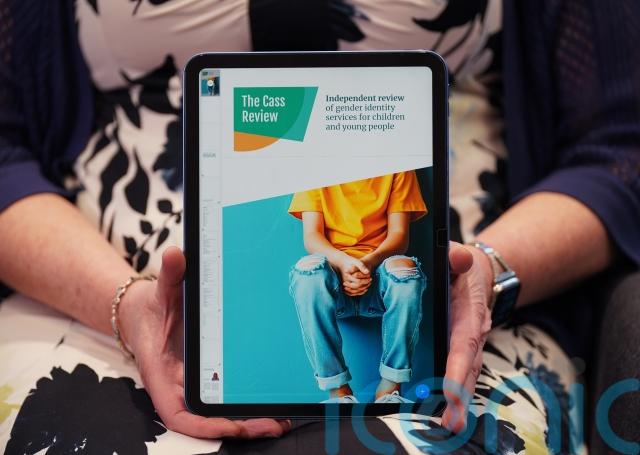
Information on how many people have reversed their gender change and why is being sought as part of NHS work on setting up a formal detransition service.
Healthcare workers who look after adults who have had hormone therapy or surgery and have or want to return to their previous gender are being asked to give input to a consultation on the issue.
It follows last year’s Cass Review into children’s gender care, which said consideration should be given to whether there should be a separately commissioned detransition service.
The NHS England consultation, launched on Thursday and running for eight weeks, is asking for information from both those who have worked in specialist gender clinics and those who have not, as well as professional healthcare organisations.
Among the questions are descriptions of patient characteristics, including factors associated with a decision to detransition, and how many patients they are currently working with.

The questionnaire notes: “Data on the prevalence and incidence of detransition is limited. Your response to this question will help NHS England to understand and quantify the extent of service needs within this population.”
NHS England said respondents are welcome to provide “data and statistics on how often individuals detransition back to their birth-registered gender” as well as “data and evidence on why individuals may choose to detransition”.
The Cass Review, published in April 2024, stated the “percentage of people treated with hormones who subsequently detransition remains unknown due to the lack of long-term follow-up studies, although there is suggestion that numbers are increasing”.
An NHS audit in 2023 – referred to as part of the final Cass report – of patients discharged from the now-shut Gender Identity Development Service (Gids) found 0.5% of patients detransitioned or were detransitioning.
Baroness Hilary Cass wrote in her report: “Regardless of the numbers who detransition, reasons for detransition are complex, and there is a lack of adequate service provision for this group of individuals who have a range of physical and psychological needs.”
She said narratives around detransition and regret “have become increasingly fraught and weaponised” and that over time “there has been an increasing acceptance that people choose to detransition for many reasons”.
She added that some people who had detransitioned had told the review “they would not want their experience to be used to invalidate that of other people”.
NHS England said between 15 and 20 people who had detransitioned were spoken to in April as part of the work on a new service, and some told of a struggle to access the right support to address their ongoing physical and mental healthcare needs.
Trans rights campaigners have warned about the “potential for abuse and the political motivations” regarding any new detransition service.
In a statement earlier this year, TransActual, said: “We believe that everyone should have access to healthcare that meets their needs, so NHS care pathways should support all transition journeys as part of their provision.
“However, in the context of failing provision of the basic transition pathway, we are deeply concerned about the potential for abuse and the political motivations behind this move, especially as appropriate support for detransitioners could be achieved by making the existing transition pathway more flexible and holistic in its approach – as we have been advocating for years.”
Subscribe or register today to discover more from DonegalLive.ie
Buy the e-paper of the Donegal Democrat, Donegal People's Press, Donegal Post and Inish Times here for instant access to Donegal's premier news titles.
Keep up with the latest news from Donegal with our daily newsletter featuring the most important stories of the day delivered to your inbox every evening at 5pm.